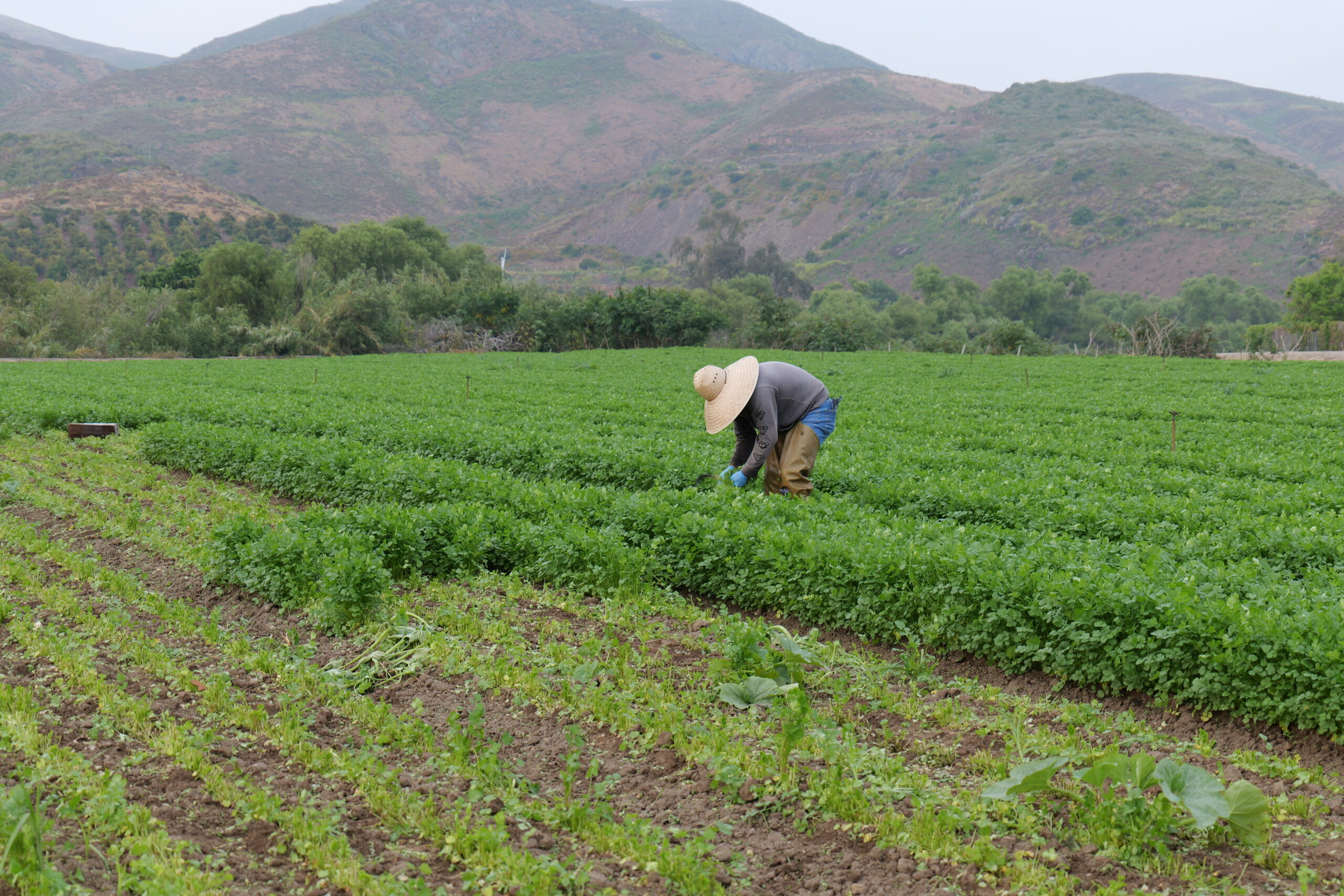Could agricultural cooperatives be the future of agricultural work?

By: Miguel Hernandez
(Listen to the audio version in Spanish, 3 min)
“Improve racial and economic justice and allow farmworkers to access their own lands in a way that transforms our relationships with the land and those who work it”
This is just one of the powerful statements cited in the multi-year report titled “Healing Land Collective Power.” The report was born from a collective effort between the Central Coast nonprofit organization United for a Sustainable Economy (CAUSA), Líderes Campesinas, and the Mixteco Indigenous Community Organizing Project (MICOP). The report, in scale, brings a unique view into the lives and systemic issues many farmworkers face when it comes to becoming owners of their own land.
The report began by describing California as one of the main agro-producing states in the entire country, raking in more than 2 billion dollars a year, with its largest crops being lemons, strawberries, and avocados.
One of the most striking claims of the report stated that in modern times there needs to be an innovation in the agricultural industry, and that innovation comes with the investment in agricultural workers to work and manage their own lands.
The report states “Through cooperatives we can create a better life for those whose work feeds the world and create a healthier community for us all.”
Through agricultural cooperatives, these foundations hope to revolutionize the dynamic between agricultural workers and the land they work. Agricultural cooperatives are the idea where several people pool resources to buy and work a plot of land. This idea was introduced in “the 19th century as a powerful tool for economic empowerment for new or small farmers.”
However, through research between the three organizations, MICOP, CAUSE, and Líderes Campesinas, it became evident that the barriers to the development of agrarian cooperatives consist of the lack of legal immigration status, economic assistance, and simply a lack of knowledge of the technology necessary for agricultural development.
Currently, the report shares how the biggest opportunity for farmworkers to join together in a cooperative could be a “collaboration with public or nonprofit conservation organizations” due to the fact that “Ventura County has large amounts of land property of environmental conservations.”
Cooperatives are a way for farmworkers to take ownership of the work they provide to the world and to benefit from their hard work. But for now, due to the high costs of property and farmland, the vast majority is owned by large corporations. However, the report concluded by mentioning how “agricultural leaders are envisioning new forms of agriculture in which they can have greater autonomy and dignity, healthier work in harmony with the land, and enjoy more of the fruits of their labor.”
